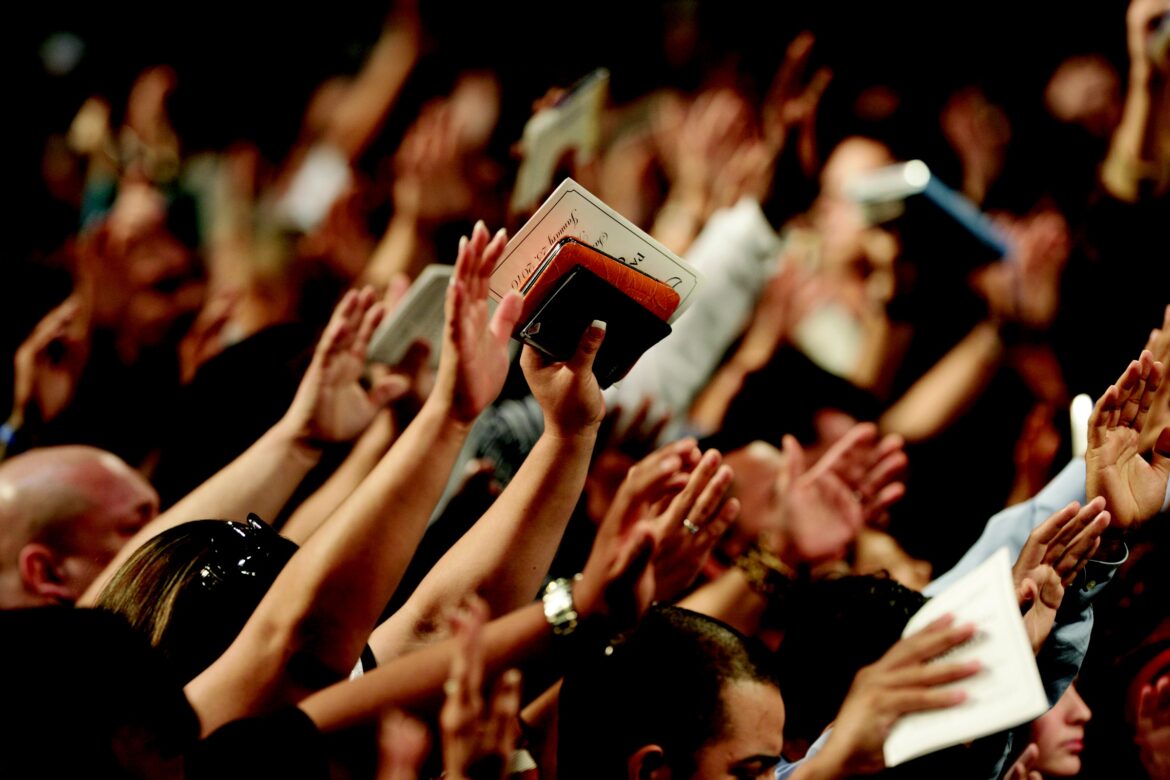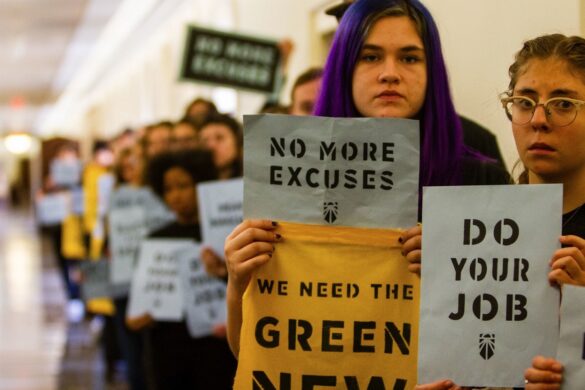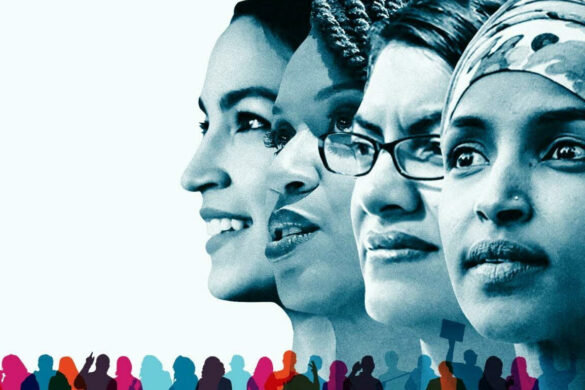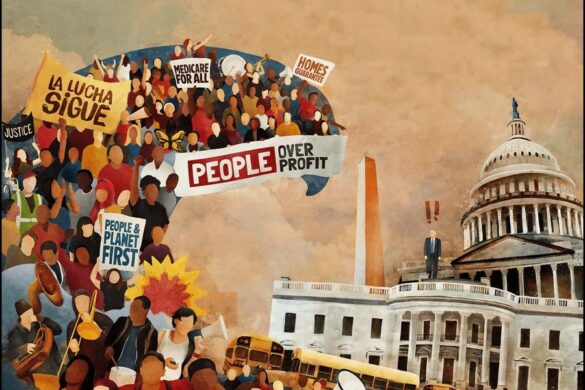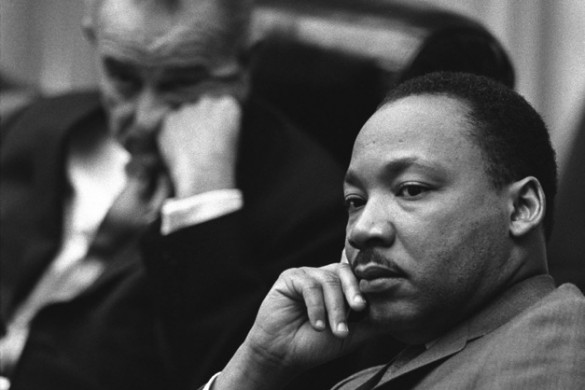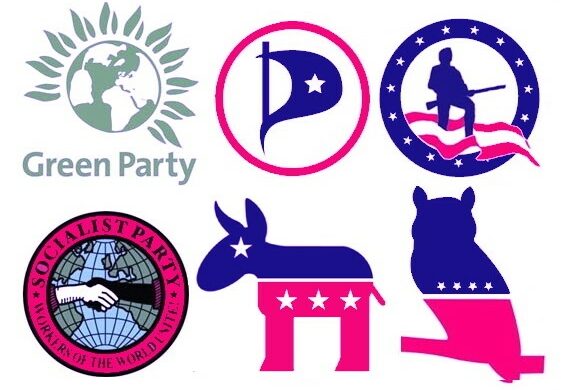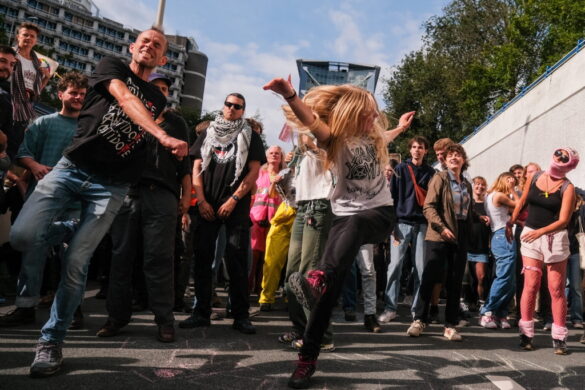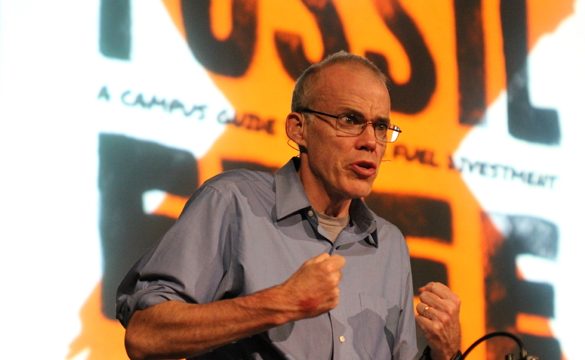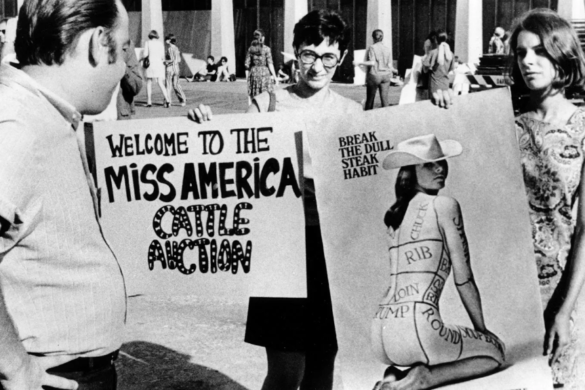Christians are splitting with the religious right over Trump, COVID and Black Lives Matter, creating opportunities for those interested in social justice.
By Paul Engler
(Published in Waging Nonviolence.)
A potentially historic political shift is currently taking place within an unexpected group of Americans: evangelical Christians. In the wake of Donald Trump’s presidency, strains within the evangelical community, especially among people of color, have resulted in significant numbers of people defecting from the right and opening themselves to social justice stances on issues of race, immigration, climate and economic fairness. Should the trend escalate, it could send tremors that extend well beyond the religious community and reverberate throughout U.S. politics.
While the future of evangelical politics remains uncertain, the divisions forming in religious spaces are creating significant opportunities for those interested in promoting progressive change. Moreover, organizing among evangelical dissenters is providing important lessons in how those working on social justice issues might find fertile ground in communities outside their circles of usual suspects — provided they can relate with people who do not identify as belonging on either side of the traditional divide between the political right and left.
Due to the various ways in which the term “evangelical” is defined, it is difficult to put an exact percentage on the number of evangelical Christians in America today. A 2016 survey by Wheaton College, a private religious university, estimated about 90 to 100 million people in the United States are evangelical. Today, it is generally taken for granted that this constituency is one of the most rock-solid pillars of the Republican coalition — and there is good reason to see things this way: In 2016, 80 percent of white evangelicals supported Donald Trump, with two-thirds of self-identified evangelicals saying their faith influences their political beliefs.
Such far-right identification, however, has not been forever locked in place. As recently as the early 1970s, evangelicals were considered a largely apolitical group. To the extent they formed a voting bloc, they were considered divided and persuadable — a constituency that could be won over by Democratic politicians such as Jimmy Carter. Indeed, since Carter was himself a born-again Christian, Newsweek magazine dubbed 1976, the year of his election, the “Year of the Evangelical.”
A concerted campaign by conservative groups such as the Moral Majority, the Christian Coalition and Focus on the Family made certain that future mentions of evangelicals in politics would definitely not refer to Democratic presidential wins. In social movement terms, the decades-long project by the “New Right” to transform the evangelical community from a muddled and sometimes apathetic bloc into one of the most die-hard conservative demographics represents an unprecedented organizing accomplishment.
In recent years there have been many news stories about how the ardent right-wing identification of the evangelical community has begun to produce increasing numbers of defectors. Primarily, this has been reported in terms of people leaving their churches.
The percentage of Americans who identify as Christian (once well over 90 percent of the population) has steadily fallen since the 1960s, with the decline accelerating in the past 10 years. Among the subset of people who identify as white evangelicals, the drop-off has been particularly marked. According to the Public Religion Research Institute, “23 percent of Americans were white evangelical Protestants in 2006; by 2020, that number had decreased to just 14.5 percent.” Some part of this trend can be attributed to a general waning of public religiosity, as an increasing portion of the population checks “none” on surveys when asked about religious affiliation.
The percentage of Americans who identify as Christian (once well over 90 percent of the population) has steadily fallen since the 1960s, with the decline accelerating in the past 10 years. Among the subset of people who identify as white evangelicals, the drop-off has been particularly marked. According to the Public Religion Research Institute, “23 percent of Americans were white evangelical Protestants in 2006; by 2020, that number had decreased to just 14.5 percent.” Some part of this trend can be attributed to a general waning of public religiosity, as an increasing portion of the population checks “none” on surveys when asked about religious affiliation.
But it would be wrong to underestimate the connection between evangelicals’ diminished share of the population and disaffection with the conservative extremism that pervades many congregations. Following Trump’s election in 2016, the #Exvangelical hashtag became increasingly popular, as many white evangelicals deserted their churches, citing Trumpism among faith leaders and their hard-right political platform as a primary concern.
Perhaps as much as any other issue, the question of race has created schisms within evangelical communities. In his article, Brooks cited “attitudes about race relations” as one of the primary factors that has driven Christian evangelicals apart. “It’s been at times agonizing and bewildering,” Thabiti Anyabwile, who pastors the largely Black Anacostia River Church in Washington, D.C, told Brooks. “My entire relationship landscape has been rearranged. I’ve lost 20-year friendships. I’ve had great distance inserted into relationships that were once close and I thought would be close for life. I’ve grieved.”
Racial tensions are not new, of course. That said, a March 2018 article by New York Times reporter Campbell Robertson highlighted how the right-wing polarization of the past decade has undone initiatives to create multi-racial church communities. A 2012 National Congregational Study showed that two-thirds of those attending majority-white churches were worshiping alongside “at least some Black congregants,” an increased level of church integration since 1998.
However, after the 2016 election, when white evangelicals supported Trump “by a larger margin than they had voted for any other presidential candidate,” churches began to resegregate, reversing previous efforts. Speaking about Trump’s open hostility towards people of color and immigrants, Walker-Barnes told Robertson, “[S]omething is profoundly wrong at the heart of the white church.”
“Everything we tried is not working,” added author Michael Emerson. “The election itself was the single most harmful event to the whole movement of reconciliation in at least the past 30 years,” he said. “It’s about to completely break apart.”
Subsequently, the murder of George Floyd in May 2020 and a renewed wave of Black Lives Matter protests further heightened tensions. At a time of national reckoning, many evangelicals of color no longer felt that their congregations adequately supported them or reflected their values. Two prominent Black evangelicals, Chicago pastor Charlie Dates and Atlanta’s John Onwucheckwa both left the SBC due to concerns about racism within the organization. For Dates, the “final straw” was when all six SBC seminary presidents issued a statement in November 2020 that rejected critical race theory, calling it “incompatible with the Baptist Faith and Message” and “not a biblical solution.”
In a December 2020 opinion piece for Religion News Service, Dates asked: “How did they, who in 2020 still don’t have a single Black denominational entity head, reject once and for all a theory that helps to frame the real race problems we face?” Dates calls for a “new vision and new standard,” one which will not be “led in full by white men” and which “speaks justice courageously to the government and cares gently for the oppressed, marginalized and women.” A little over a year after Dates’ public exit, in February 2022, the SBC appointed Tennessee Baptist pastor Willie McLaurin as interim president and CEO of the SBC Executive Committee; McLaurin is the first and the sole Black person to assume an Executive Committee role.
For his part, Onwuchekwa named four reasons for leaving the SBC, including the “destructive nature of a disremembered history” (the SBC failing to address the ways the organization participated in slavery), “racial repair” (the denomination has not denounced racism), “unhealthy partisanship” (allegiance to the Republican Party), and “shallow solutions where they should be putting on scuba gear” (a focus on unity rather than structural solutions to racial injustice). “The SBC liked me,” Onwuchekwa wrote in his public goodbye letter, “but I feel like they’ve failed people like me. I’d rather give myself to serving that overlooked and under-resourced demographic than merely enjoy the perks of being treated as some outlier.”
* * * * *
A mixed evangelical politics
Although there are signs that new political possibilities may emerge within evangelical spaces that have experienced polarization and division, there is no widespread agreement about what form these may take — and how radically they might break with the orthodoxy of the religious right.
Some dissenters, while perhaps falling in the “Never Trump” camp, remain hardline conservatives, simply wanting a more sedate, family-values Republicanism. As Rachel Stone, a lifelong evangelical and former evangelical writer, wrote in response to the David Brooks article, “Mr. Brooks’s alleged ‘dissenters’ depart from evangelical orthodoxy by not bowing to Donald Trump; otherwise, they’re typical evangelical gatekeepers.” As an example, Stone noted that one of the “Never Trumpers” cited by Brooks, Christian professor Karen Swallow Prior, supports highly restrictive abortion legislation, among other conservative public policies. Other evangelicals want to make their churches less political, but not necessarily more progressive, putting forward calls for unity that attempt to paper over existing strains.
Those millions are people that no movement interested in changing the world for the better should want to ignore.

